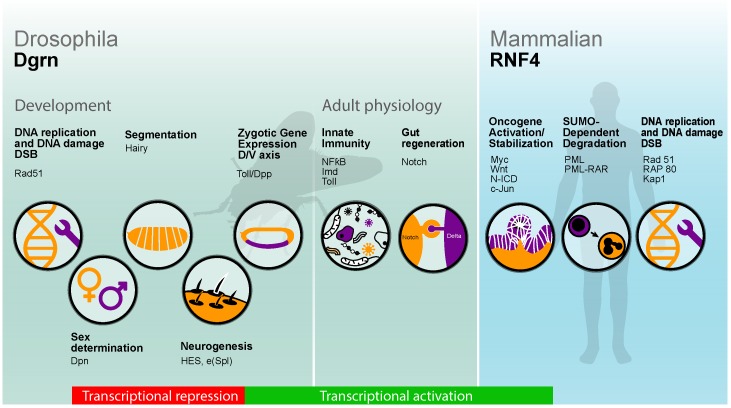Figure 3.
Processes and key proteins regulated by Dgrn and RNF4 in Drosophila and humans. In the developing embryo, Dgrn is required to resolve DSBs, and a similar function was attributed to RNF4 upon DNA damage in mouse and humans. In transcription, Dgrn determines co-factor choice during transcriptional repression limiting Hairy, Deadpan (Dpn), and HES E(spl) activity during segmentation, sex determination, and neurogenesis. Dgrn and RNF4 also enhance transcriptional activation. Dgrn is required for the expression of early zygotic genes such as twist, and zen downstream targets of the Toll and Dpp pathways. In the adult fly, Dgrn is required for the transcription of AMP genes, and for Notch-dependent transcription and gut regeneration. Likewise, RNF4 stabilizes and potentiates the transcriptional activity of c-Myc, c-Jun, and β-catenin promoting tumorigenesis of cancer cells. In contrast, in the context of promyelocytic leukemia, RNF4 ubiquitinates and targets the SUMOylated oncogenic PML-RAR for degradation, which suppresses tumorigenesis.

